
Remember how happy we were the first time vegan milks became available in stores? Finally, you could get soy, almond, and rice milks in the supermarket. And then, things started changing. Because of the dangers of soy, almond milk became a favorite. But now, we’re wondering if store-bought almond milk is really all that. Here are five reasons you may want to rethink your store-bought almond milk.
Sign up for the newsletter for more natural wellness tips.
1. Made from Almonds
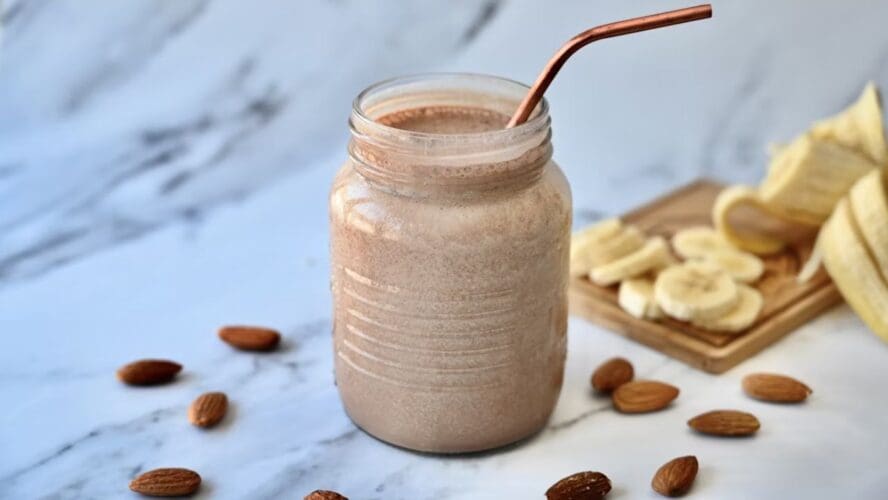
It says almond on the front of the package, but how many almonds actually make it into your store-bought almond milk? Recent industry insiders admit that a half-gallon of almond milk contains less than a handful of actual almonds. Almond milk contains a pitiful 2% almonds. Not encouraging for a product with almond in the name.
Based on the amount of almonds in the milk, one writer calculated the price point of most almond milks and found that you’re better off just snacking on a handful of almonds… or making your own almond milk.
2. Most Almond Milk Contains Additives
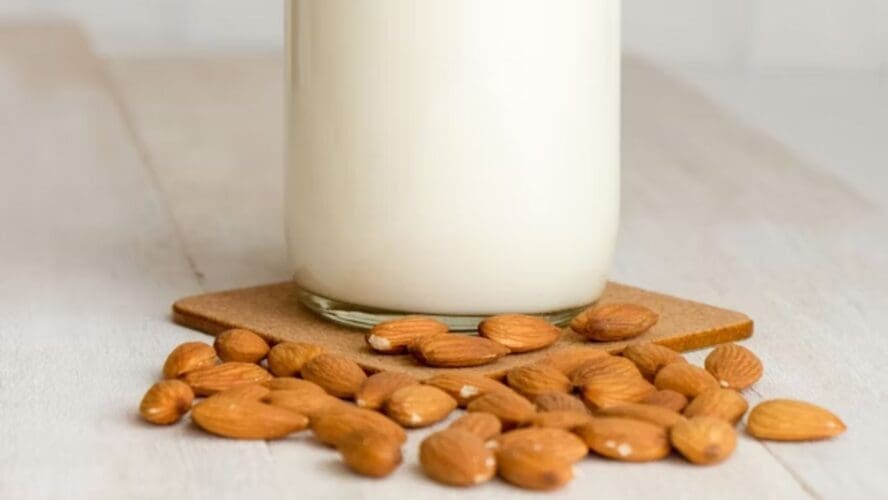
Most vegan milks and vegan milk products contain carrageenan, a product derived from seaweed that acts as a vegan thickener, giving a fuller mouthfeel and taste. Some attribute certain hysteria-inducing properties to carrageenan, going so far as to call it a carcinogen. While other studies beg us to stop panicking, the truth of the matter is that carrageenan relates to ulceration and inflammation, and it has no nutritional benefits, so there’s no reason to drink it1.
If you don’t want carrageenan in your diet, you have a few options. One writer decided to switch back to cow’s milk, though others simply choose to avoid brands containing carrageenan, or make their own.
3. Not That Good for You
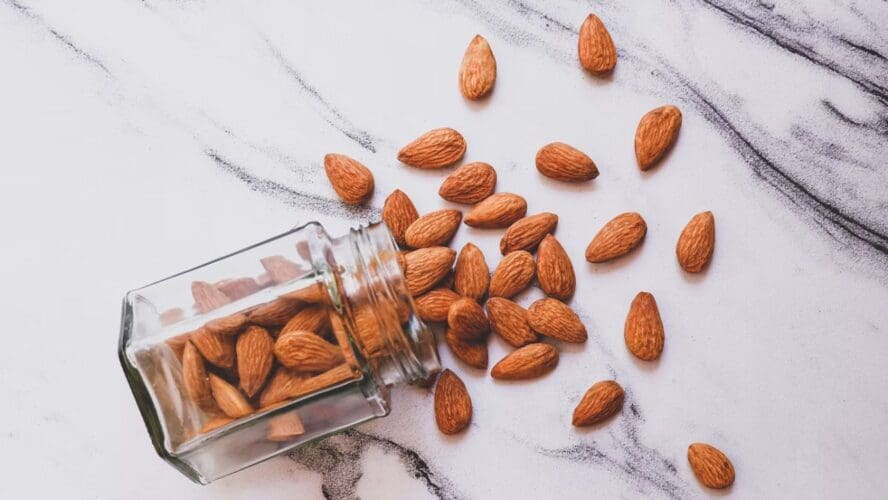
It’s not that almond milk is bad for you, per se, but a glass of store-bought almond milk does not offer a ton of nutrients.
Almond milk is lower in calories than cow’s milk, but it’s also lower in protein and in calcium. Seems strange? Remember what we said up above: there aren’t that many almonds in your almond milk, therefore, not much of that beneficial plant protein.
Of course, there are ways to combat this. You can get your protein from other sources, for example, by mixing your morning almond milk with a high-protein cereal. Or, you can make your own almond milk at home and up the protein ante by giving yourself more bang for your buck in the almond department.
4. Source of Dangerous Allergic Reactions
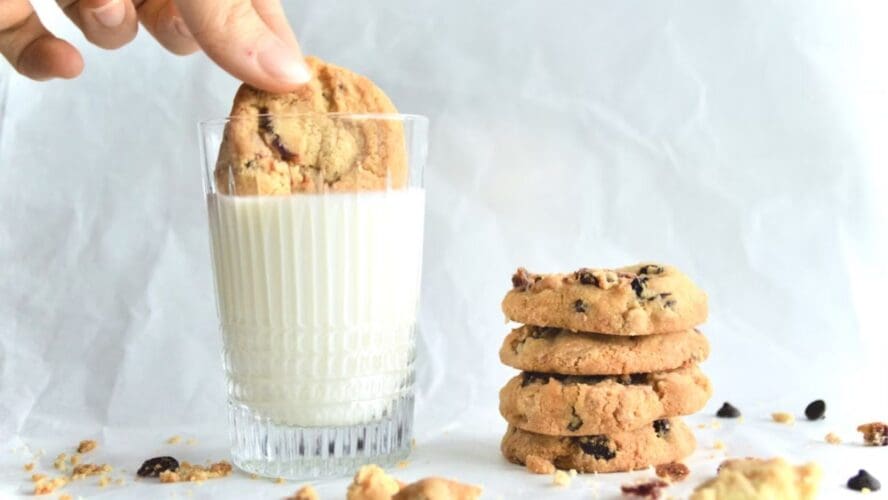
While almond milk is not a problem for most people, it can be very dangerous for a select few. Tree nut allergies can be a very severe problem, leading to anything from itchy, annoying hives to full anaphylaxis.
Almond milk also contains the non-essential amino acid tyrosine, which, while useful for many, can aggravate migraine headaches for sufferers. It also contains phytic acid, which paleo diet proponents warn against, as it can keep you from absorbing certain nutrients.
None of these problems means that you should definitely swear off almonds, but they are things to consider, especially if you are buying almond milk for a household of people, all of whom have different nutritional needs.
5. Contain High Levels of Omega-6
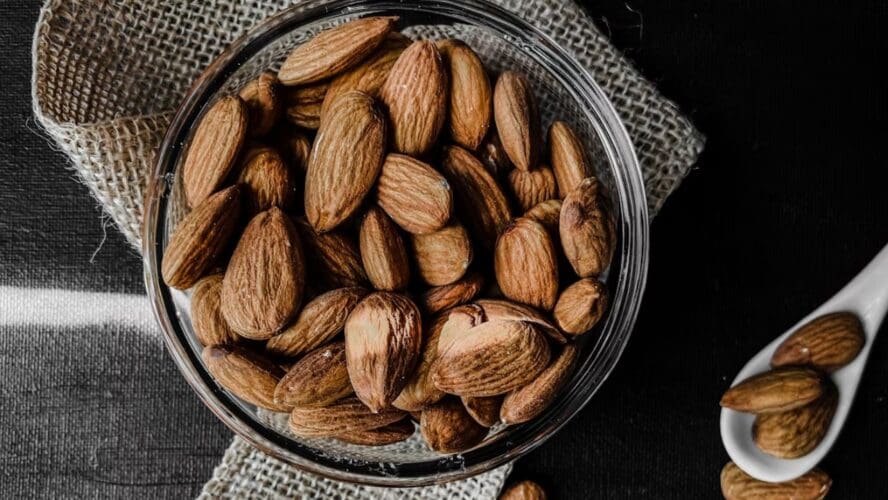
We need a balance of omega-3 and omega-6 fatty acids in our diets; ideally, in a 1:1 ratio. The problem is that our diets already contain too much omega-6 and not enough omega-3, and as a result, if you add a large amount of almonds to your diet in the form of almond milk, you’ll be adding quite a bit more omega-6.
Sources of omega-3 include a lot of fish, so especially those following a plant-based diet will need to be aware of this balance and seek out plant-based omega-3-rich foods such as flaxseeds, hemp seeds, and chia seeds.
What to Do Instead?

If it seems like your only option is switching to homemade almond milk, never fear. There are other alternative milks that you can try, including oat milk and hemp milk. Oat milk contains quite a bit of fiber, which is always an added plus. Though hemp milk brings omega-3s to the party. Some are fortified with calcium and vitamin D as well, which makes hemp milk a great choice.
Hemp milk is still a bit difficult to find. Though it is getting easier, you can always make your own hemp milk at home, too.

How to Make Dairy-Free Oat Milk At Home
Nearly Half of Americans Buy Both Dairy and Plant-Based Milk
Homemade Cashew Milk with Cinnamon and Maple Syrup
Consumers Aren’t Confused By Dairy and Plant-Based Milk Labels, Survey Shows
Sources:

